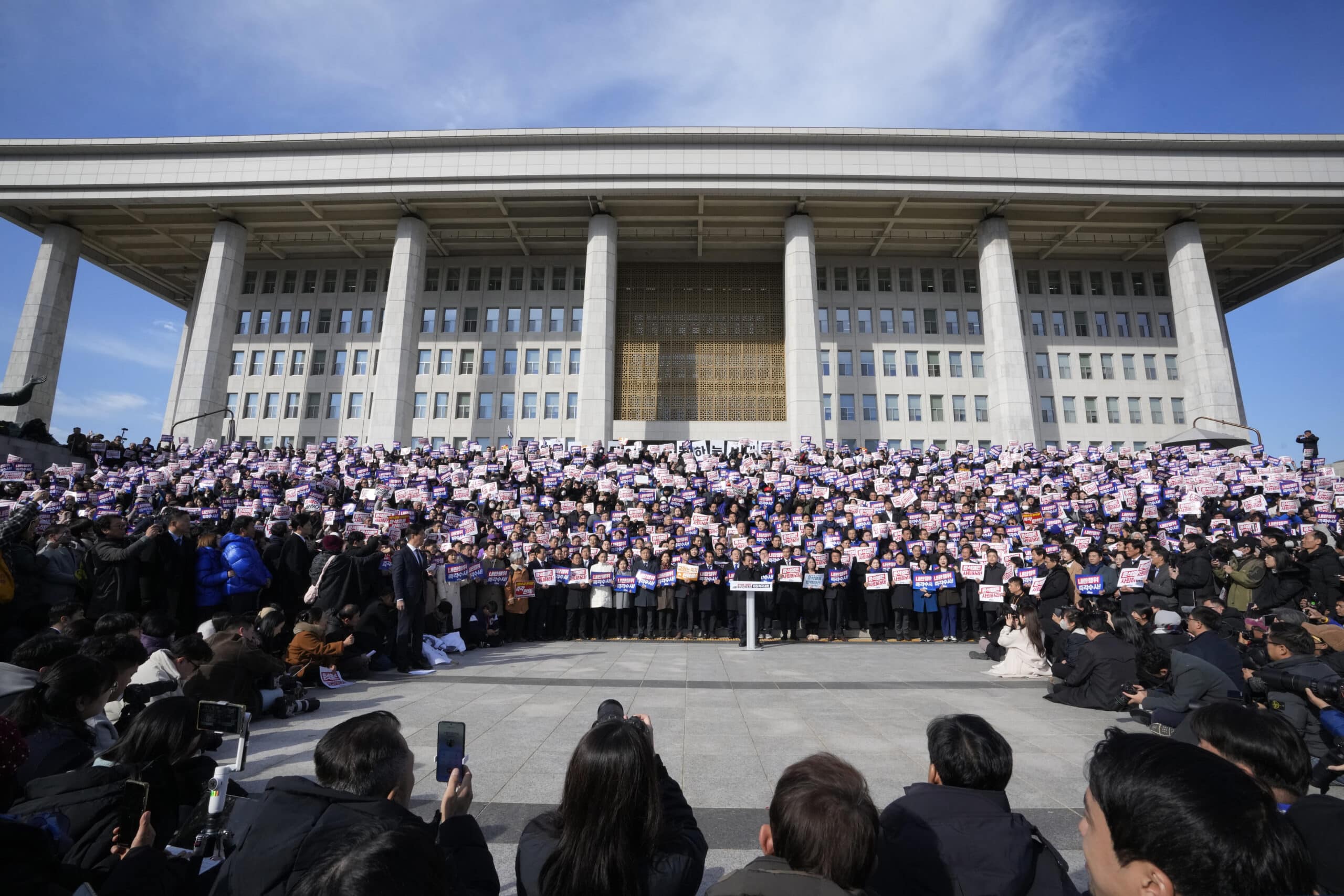South Korea to provide liquidity to stabilize markets after turmoil

Members of main opposition Democratic Party stage a rally against South Korean President Yoon Suk Yeol at the National Assembly in Seoul, South Korea, Wednesday, Dec. 4, 2024. (AP Photo/Ahn Young-joon)
Seoul, South Korea — South Korea said it would provide “sufficient liquidity” to support its financial markets Wednesday after the country was rocked by President Yoon Suk Yeol’s brief imposition of martial law overnight.
Equities sank more than two percent in Seoul and the won initially plunged to a two-year low against the dollar after the dramatic move, which stunned traders already concerned about the state of Asia’s number-three economy.
In a bid to limit the fallout from the crisis, the country’s central bank and finance ministry moved to reassure markets.
READ: Seoul stocks sink amid South Korea drama as Asian markets struggle
“As announced together with the government, it has been decided to temporarily supply sufficient liquidity until the financial and foreign exchange markets stabilize,” the Bank of Korea said.
Article continues after this advertisementIt added that “the range of securities eligible for (repo) transactions and the target institutions will be expanded”.
Article continues after this advertisementDeputy Prime Minister Choi Sang-mok, who is also the Minister of Economy and Finance, said financial authorities will keep international partners informed about developments.
“In order to ease concerns about our economic situation, we will closely communicate with international credit rating agencies, major countries such as the US, domestic economic organizations and financial markets, and share the situation,” he said.
“In addition, we will operate a 24-hour economic and financial situation inspection task force to operate a real-time monitoring system to prevent a real-time economic shock, and we will thoroughly monitor with relevant organizations to prevent any disruptions in exports.”
He added that “the government will also do its best to ensure that the uncertainty facing our economy is quickly resolved”.
READ: Seoul stock exchange opens down 2% after martial law bid
Yoon said he had made the shock decision, which took Seoul’s global allies by off guard, “to safeguard a liberal South Korea from the threats posed by North Korea’s communist forces and to eliminate anti-state elements plundering people’s freedom and happiness”.
However, he backed down hours later when lawmakers voted to oppose the declaration, while thousands of protesters took to the streets and the nation’s largest umbrella labour union called an “indefinite general strike” until Yoon resigned.
Analysts warned that while the U-turn meant the impact of the night’s extraordinary events would be tempered, the country could still face further turmoil in the economy, with worries about US President-elect Donald Trump trade policy also causing concern.
“From a macro perspective, South Korea was already one of the more vulnerable countries to the impact of Trump’s proposed tariffs,” said MUFG’s senior currency analyst Michael Wan.
“This recent development could raise some further risk premium on the currency at least until we get clarity on political stability.”